Programme in the Liberal Arts and Sciences (PLAS)
Excerpt
The Programme in the Liberal Arts and Sciences (PLAS) is open to any person wishing to start or continue a programme of study in higher education. It targets mainly, but not exclusively, adult learners and offers them the opportunity to follow ‘stand alone’ units from a broad range of areas in the arts and sciences. In this way, students have the opportunity to study at their own pace and follow units of interest to them. Access to the programme does not necessarily require interested individuals to have attained all regular admission requirements to the University of Malta, but may be subject to a short interview and certain qualifications or experience may be specified for particular study units. The programme allows students to use accumulated study units to achieve a short – cycle qualification (Certificate, a Diploma or a Higher Diploma) and a Bachelor’s degree in Liberal Studies, without any limits of time. In this way, the programme offers a new opportunity to individuals who would like to start or continue studying at university level at their own pace alongside other commitments.
Narrative, origins and objectives of the initiative
What kind of project is this? Please give a short description (summary) of it.
The Programme in the Liberal Arts and Sciences (PLAS) is open to any person wishing to start or continue a programme of study in higher education. It targets mainly, but not exclusively, adult learners and offers them the opportunity to follow ‘stand alone’ units from a broad range of areas in the arts and sciences. In this way, students have the opportunity to study at their own pace and follow units of interest to them. Access to the programme does not necessarily require interested individuals to have attained all regular admission requirements to the University of Malta, but may be subject to a short interview and certain qualifications or experience may be specified for particular study units. The programme allows students to use accumulated study units to achieve a short – cycle qualification (Certificate, a Diploma or a Higher Diploma) and a Bachelor’s degree in Liberal Studies, without any limits of time. In this way, the programme offers a new opportunity to individuals who would like to start or continue studying at university level at their own pace alongside other commitments.
Please tell us why, in general, this project is considered a successful one?
The programme is successful in various respects. It is successful from the perspective of providing individuals with the flexibility of following as few or as many study units as suits their personal timetable and workload. Study units completed and credits attained can be accumulated towards the attainment of a short - cycle qualification (Certificate, Diploma or Higher Diploma) and towards a Bachelor’s degree without a time limitation by when the qualification has to be completed. Study units are generally held in the evening, allowing persons in employment to combine studies and work. The programme is also successful from the perspective of allowing individuals to choose study units of interest to them from a wide variety of areas, provided they meet the guidelines of the study programme towards attaining a qualification.
And why would you consider it a grass-roots initiative?
The Programme in the Liberal Arts and Sciences (PLAS) was developed by the University of Malta following the establishment of the Centre for the Liberal Arts and Sciences in February 2014. The Centre and the Programme contribute to the University of Malta’s third mission of public outreach and engagement with specialists outside academia while at the same time promoting interdisciplinary collaboration within the University.
What challenges needed to be solved in this project?
There were no challenges that needed to be solved.
Is this initiative based on any particular theoretical framework? Which one?
The Programme follows the tradition of liberal education based on the concept of the classical artes liberales in Greek and Roman antiquity, which underwent subsequent transformations in the Middle Ages, the Renaissance, the Enlightenment and the 21st Century. Originally conceived as the education required by a free person (liber: a citizen as opposed to a slave), a ‘liberal education’ developed into a philosophy of education that empowers individuals with a breadth of knowledge and transferable skills, as well as a stronger sense of civic engagement.
In this light, the Programme in the Liberal Arts and Sciences offers a broad range of ‘stand alone’ study-units in areas such as archaeology, history, literature, culture, conservation, philosophy, economics, public policy, migration, music, biology, medicine, earth systems, marketing, art, astronomy, sociology, politics, wine-making, chemistry, architecture, law, photography, and more.
(Appendix) Is your intervention standing on its own or is it a part of a bigger and more holistic approach?
Malta is seeking to increase attainment in further and higher education. This initiative by the University of Malta contributes to delivering on increasing participation and attainment in higher education.
Please describe the group(s) intended as beneficiaries of this initiative
Why has this group (have these groups) been chosen?
Despite a rapid increase in the higher education attainment rate among 30-34-year-olds in Malta from 17.6% in 2005 to 30.0% in 2017, this progress is still well below the average EU-28 rate which increased from 28.1% to 39.9% over the same period (see Figure 1). In view of this development, Malta has set itself the target to increase the higher education attainment rate among 30-34-year-olds to 33% by 2020 (NCFHE 2015) compared to the overarching EU 2020 target of 40% by 2020 (European Commission 2010). This target appears to be realistic if higher education participation and attainment levels continue to increase as witnessed in the past decade.
Given that the higher education attainment rate of 30-34 year olds in Malta is still well below the EU-28 average, efforts to increase participation in and attainment of higher education should focus not only on increasing the share of young people attaining the regular entry qualification into higher education and entering directly after completing post-secondary education. Instead, efforts should also include attracting those, who discontinued their studies to return to education. This might require more flexible modes of study that allow individuals to combine studying with other commitments.
The PLAS provides such an opportunity to follow a programme of study at ones’ own pace. As such, it offers an alternative pathway into higher education for individuals with other commitments apart from studying that meets their particular needs while contributing to increasing higher education attainment levels in the total population.
[caption id="attachment_5844" align="alignnone" width="960"] Fig. 1: Higher education attainment rate among 30-34-year-olds in Malta and EU-28, Source: EUROSTAT 2017, edat_lfse_03[/caption]
Fig. 1: Higher education attainment rate among 30-34-year-olds in Malta and EU-28, Source: EUROSTAT 2017, edat_lfse_03[/caption]
European Commission. (03.03.2010). Communication from the Commission. Europe 2020. A strategy for smart, sustainable and inclusive growth.
National Commission for Further and Higher Education. (2015). Higher Education Strategy for Malta within the context of the Further and Higher Education Strategy 2020 (NCHE, 2009) and the Framework for the Education Strategy for Malta 2015-2024.
Could you please tell us something about the relative size of the (of each) target group, within the school/university population, region and/or country?
Since the first intake of students in the PLAS enrolments have developed as follows:
Academic year 2014/2015: 160 students (90 Female; 70 Male), 1.4% of total student population at the University of Malta
Academic year 2015/2016: 573 students (335 Female; 238 Male), 4.8% of total student population at the University of Malta
Academic year 2016/2017: 414 students (247 Female; 167 Male), 3.5% of total student population at the University of Malta
Academic year 2017/2018: 435 students (287 Female; 148 Male), 3.8% of total student population at the University of Malta
Source: University of Malta, https://www.um.edu.mt/about/facts/morenumbers
Which social characteristics are taken into account and what is the geographical area covered?
The programme targets mainly, but not exclusively, adult learners from all over Malta. Hence, no particular social characteristics are taken into account, nor a particular geographical area is targeted.
On which level is the project implemented?
The project was initiated by the University of Malta by establishing the Centre for the Liberal Arts and Sciences in February 2014 to implement the PLAS. Hence the initiative is an institutional one.
Please describe the political and socio-economic factors that you believe have been important enablers for your initiative
Did the initiative have political support?
Increasing higher education attainment among 30-34 year olds forms part of the EU 2020 strategy. Despite the increase in the higher education attainment rate among 30-34-year-olds in Malta in the past decade, this progress is still well below the average EU-28 rate. In view of this development, Malta is giving priority to initiatives aimed at increasing the higher education attainment rate in an effort to attain the national target of 33% among 30-34-year-olds having attained higher education by 2020 (NCFHE 2015).
How did it fit with local, regional or national policies?
The project delivers on the attainment of the EU 2020 target of 30-34 year olds having attained higher education by 2020.
Who are the stakeholders supporting the initiative?
The programme is an initiative by the University of Malta, which implements it through the Centre for the Liberal Arts and Sciences.
Are there particular demographic changes present that are influencing the project?
Student enrollments in part-time programmes in higher education in Malta have remained relatively stable over the past years, making up approximately 22% of all students in higher education (2,733 out of 12,574 students in higher education in 2013 and 2,918 out of 13,329 students in 2016). However, the share of part-time students in short-cycle higher education is considerably higher and has further increased over the same period from 879 out of 2,466 students in 2013 (36%) to 1,009 out of 1,906 students in 2016 (53%). See Figure 2. This clearly shows the demand for more flexible forms of study particularly among those individuals seeking to attain a first higher education qualification. The PLAS meets this demand by offering a programme of study that allows individuals to study at their own pace.
[caption id="attachment_5845" align="alignnone" width="960"] Fig. 2: Students enrolled in tertiary education in Malta by education level and intensity of participation, Source: EUROSTAT 2016, educ_uoe_enrt01[/caption]
Fig. 2: Students enrolled in tertiary education in Malta by education level and intensity of participation, Source: EUROSTAT 2016, educ_uoe_enrt01[/caption]
What is the institutional strategy and culture of the (educational) organization?
The PLAS delivers on the third mission of the University of Malta, namely of public outreach and engagement with specialists outside academia while at the same time promoting interdisciplinary collaboration within the University.
To what extent does the initiative have an influence on institutional policy (or potential influence) of the (educational) organization?
The programme delivers on a new approach, whereby students can select the individual courses comprising their study programme themselves within the framework of the overall programme guidelines. Students can choose flexible exit points at EQF level 5 (Undergraduate Certificate and Undergraduate Diploma) and EQF level 6 (Bachelor) depending on the number of credits they have completed and the extent of time they wish to dedicate to the programme. This is a unique approach at the University of Malta.
(Appendix) Is there public support for your initiative and the issue it addresses?
Increasing higher education attainment levels is a national priority that delivers on achieving the EU 2020 targets.
(Appendix) What other factors do you think have been important for the success of this initiative?
The overall aim of the Government of Malta to increase participation in and attainment of further and higher education in Malta has certainly given the issue of furthering one's studies more emphasis in the public.
Please describe the overall initiative design and the methods and tools used to reach the goals
Please describe the specific activities carried out.
The Programme in the Liberal Arts and Sciences offers a broad range of ‘stand alone’ study-units in areas such as archaeology, history, literature, culture, conservation, philosophy, economics, public policy, migration, music, biology, medicine, earth systems, marketing, art, astronomy, sociology, politics, winemaking, chemistry, architecture, law, photography, and more. Students may register for any and as many individual PLAS Units of their choice, depending on their availability, interests and needs. Each Unit has a value of 4 or 8 ECTS credits and is assessed mainly through assignments, which may include seminars, presentations, field work and visits. Units of 4 ECTS credits normally involve 24-28 hours of teaching, usually spread over 14 weeks (one 2-hr session per week); Units of 8 ECTS credits normally involve 48-56 hours of teaching, usually spread over 14 weeks (two 2-hr sessions per week). Lectures will normally be held between 1800hrs and 2000hrs.
The programme’s flexibility allows students to use accumulated credits to achieve a Certificate, a Diploma, a Higher Diploma and a Bachelor’s degree in Liberal Studies, without any limits of time, as follows:
a Certificate in Liberal Studies is awarded if students obtain at least 30 Credits;
a Diploma in Liberal Studies is awarded if students obtain at least 60 Credits, provided that not more than 40 Credits are at the Introductory Level;
a Higher Diploma in Liberal Studies is awarded if students obtain at least 120 Credits, provided that not more than 60 Credits are at the Introductory Level;
a Bachelor's Degree in Liberal Studies is awarded if students obtain at least 180 Credits, of which not more than 80 Credits at the Introductory Level.
What were the key roles (teacher, student, management team etc.) within the project?
Academic staff and management of the Programme in the Liberal Arts and Sciences collaborate to offer a wide variety of courses that students may choose from. This includes also a cluster of technically-oriented, hands-on units that focus on current and emerging software technologies and tools.
The PLAS Tech Units are particularly relevant for: (i) practitioners who want to learn about cutting-edge technologies; (ii) IT companies seeking opportunities to train their employees in the use of new technologies which they may plan to adopt; (iii) students from the University of Malta, MCAST and other academic institutions who wish to supplement their academic knowledge with hands-on training; (iv) members of the general public who already have a technical background and want to learn specialised technologies.
What ideas, tools, theories, models, methodology (etc.) have been used to reach the goals?
The Programme follows the tradition of liberal education based on the concept of the classical artes liberales in Greek and Roman antiquity, which underwent subsequent transformations in the Middle Ages, the Renaissance, the Enlightenment and the 21st Century. Originally conceived as the education required by a free person (liber: a citizen as opposed to a slave), a ‘liberal education’ developed into a philosophy of education that empowers individuals with a breadth of knowledge and transferable skills, as well as a stronger sense of civic engagement.
What are the final revenues of the project?
The initiative is ongoing. So no information on final revenues exists.
Please describe if your project ensured its sustainability
If so, how did you ensure the short-term impact of the project?
The University of Malta has promoted its initiative through print and online media, such as leaflets and advertisement in newspapers, through television and video testimonials to make the public aware of this new opportunity of following a programme according to one's own interests with the possibility to accumulate credits over time until the desired level of education has been completed.
These videos and testimonials are available online:
https://www.youtube.com/watch?v=m-Z6PFMMwus
https://www.youtube.com/watch?v=p3Cb0wBjrPk
https://www.youtube.com/watch?v=JTi5lRJcZFE&t=42s
https://www.youtube.com/watch?v=LLo74fpk_iE
The short-term impact was also ensured through the provision of a wide variety of courses to reach a wide and varied audience that might be interested in following this programme. Through this approach the initiative sought to appeal to as wide an audience as possible.
And how did you ensure the long-term impact of the project?
The programme forms part of the prospectus of courses offered by the University of Malta and part of its institutional . Hence, funding for the maintenance and delivery of the programme is secured.
Has your project been replicated elsewhere?
The specific format of the PLAS has not been replicated in this format. However, in some countries, such as Sweden, student have the possibility within their study programme to select individual study units or courses to tailor make their study programme to their specific interests. In most cases, however, students enroll in a programme of study at a given EQF level rather than obtaining their qualification through accumulation of ECTS with flexible exit points. This level of flexibility seems to be unique to the PLAS.
Please tell us about the resources used in this initiative
What was the budget for the initiative?
The PLAS is subject to fees. A PLAS unit of 4 ECTS credits is subject to a fee of 180 Euro, while a PLAS unit of 8 ECTS is subject to a fee of 360 Euro.PLAS Tech units are subject to higher fees, namely 340 Euro for a unit of 4 ECTS credits. Full-time students of the University of Malta may join PLAS Tech units for 200 Euro for a unit of 4 ECTS credits. In case of late application a fee of 20 Euro is due. The same fees apply for Maltese, EU/EEA and Non-EU/EEA nationals.
How much did the initiative depend on volunteers?
The PLAS forms part of the undergraduate programmes of the University of Malta and, hence, does not depend on volunteers.
How were the costs perceived by the public/the sector/other stakeholders?
The University of Malta is well regarded in the public as the main provider of higher education in Malta. This includes the PLAS.
To what extent did the initiative achieve its objectives?
Please describe the evidence to support the success of your initiative.
Student enrollments in the PLAS have increased from 160 students during the academic year 2014/2015 to 414 students during the academic year 2016/2017.
The first graduates of the PLAS completed their qualification in 2015/2016. During that academic year 4 individuals graduates from the PLAS, of which 1 completed a short-cycle qualification (Diploma in Liberal Studies) and 3 completed a Bachelor in Liberal Studies. During the academic year 2016/2017 18 individuals graduates from the PLAS, of which 16 completed a short-cycle qualification (15 completed a Certificate in Liberal Studies and 1 completed a Diploma in Liberal Studies) and 2 completed a Bachelor in Liberal studies.
Source: University of Malta, https://www.um.edu.mt/about/facts/morenumbers
Did the intervention lead to any unintended (positive) outcomes?
No unintended positive outcomes were recorded.
What indicators (quantitative and qualitative) have you measured to demonstrate success?
The main indicators measured to demonstrate the success of the initiative are student enrollments and graduates per academic year.
(Appendix) How did you evaluate/monitor this intervention?
Data on student enrollments and graduates from the PLAS are a means of assessing the success and interest in the project.


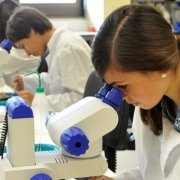

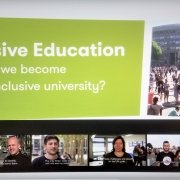
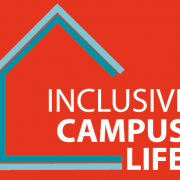
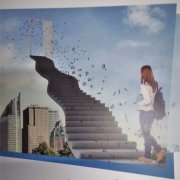
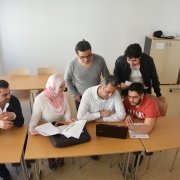 Copyright: Camilla Pellech, Postgraduate Center der Universität
Copyright: Camilla Pellech, Postgraduate Center der Universität
